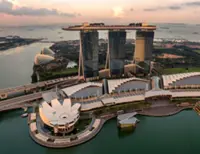Singapore has long defended the need for laws to police content on the Internet, saying the island is especially vulnerable to fake news and misinformation campaigns given it’s a financial hub with a multi-ethnic population that enjoys widespread Internet access. — Photo by ROBIN WORRALL on Unsplash
Singapore is joining global peers in proposing laws that will grant regulators the power to order social media services to remove or block online content deemed harmful especially to youths.
The envisioned rules also require social media platforms to implement community standards and content moderation processes to shield users from harmful content, communications minister Josephine Teo said in a Facebook post on June 20. The guidelines, which will undergo public consultation starting next month, push social media companies to take greater responsibility for user safety, she said.





